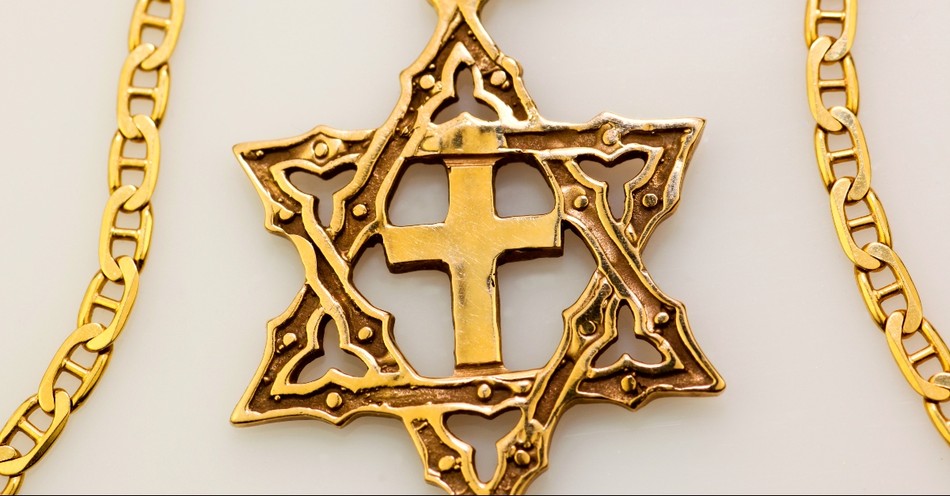Those in other denominations may have heard the term “Messianic Jew” or “Messianic Judaism” before but may not know what these terms mean.
Perhaps they have met a Christian who says they are a Messianic Jew, but they may not know the history of Messianic Judaism.
A Messianic Jew is a person of Jewish heritage who believes in Jesus as their Savior and Lord. Although we can list many examples from the New Testament of Jewish people who came to Christ, we’ll discuss the newer history of the Messianic Jewish movement, some of the pillars of the denomination, and why we should know about Messianic Judaism today.
Let’s dive in!
A Brief History of Messianic Judaism
Of course, one could point to the New Testament and say, “The Messianic Jewish movement started here.” After all, Jesus had Jewish followers. And his disciples were indwelled by the Holy Spirit during Pentecost,
Suddenly a sound like the blowing of a violent wind came from heaven and filled the whole house where they were sitting. They saw what seemed to be tongues of fire that separated and came to rest on each of them. All of them were filled with the Holy Spirit and began to speak in other tongues as the Spirit enabled them (Acts 2:2-4).
As far as the explicit movement of “Messianic Judaism,” where Jews for Christ went by this name, it happened a little later in church history than the first century AD. And it often depends on who you ask.
According to the Jews for Jesus website, the movement has gone under different names. After a split of Jewish Christians and Gentile Christians after the fall of Rome, many Jewish Christians who simultaneously practiced the Torah and practiced the teachings of the New Testament went under the name of Nazarenes, a name that still exists for Jewish-Christians today.
Sadly, many anti-Semitic movements drove many Jewish-Christians away from the churches in the early centuries, because many believed God had rejected the Jews and Jewish practices.
Nevertheless, a remnant of Jewish-Christians remained throughout the centuries of church history.
“The first functioning place of worship for Jewish believers was Christ Church in Jerusalem, which was completed in 1849, with a Jewish believer called Solomon Alexander as the first protestant bishop in Israel,” according to One for Israel.
In the 1800s, the Messianic Jewish movement really took wing.
In the 1960s and 70s, the popularity of the group grew, and they went under the name “the Jesus people.”
The movement continues to grow so much that one-third of Jewish people in the United States claim that Jesus being the Messiah is compatible with Judaism, according to a 2013 study.
Pillars of Messianic Judaism
First and foremost, we need to draw a distinction between Judaism and Messianic Judaism.
The former does believe that a savior will come to redeem the Jewish people, but they do not believe that Jesus fulfilled that role. Messianic Jews, on the other hand, do believe that Jesus came to the earth as the Messiah.
Secondly, most Messianic Jews will observe both instructions from the New Testament and practices from the Old Testament, in particular, the Torah. This also might mean they observe Sabbaths, Jewish holidays, and strict dietary laws.
They both will celebrate their Jewish heritage, but they also do hold fast to the idea that Yeshua (Jesus) is the Messiah.
For a breakdown of the beliefs and practices of Messianic Jews, check out this article here.
Why Should I Know about Messianic Judaism?
The church has a difficult history of anti-Semitism, especially in the early centuries. This conflict has occurred since even the New Testament times (Acts 6:1; Romans 2). Many Jews and Gentiles in the church would discriminate amongst one another, believing the other was not holy enough or did not deserve a spot in being called a child of God.
Many Jewish peoples felt ostracized or abandoned. Nevertheless, many Jewish people came to faith throughout the centuries whilst still observing practices from the Torah. We should know about their history because it can better help us understand Messianic Judaism.
It’s important to also know the differences between Messianic Judaism’s practices and those of strictly Christian denominations.
For instance, a Messianic Jew may not celebrate Christian holidays such as Christmas but may celebrate a Jewish holiday such as Passover.
Finally, it never hurts to learn more about a person’s background and where they’ve come from. If we meet a Messianic Jew, we can learn more about their practices in which we’re unfamiliar with and ask questions.
Photo Credit: ©iStock/Getty Images Plus/LisaIson
Hope Bolinger is an acquisitions editor at End Game Press, book editor for hire, and the author of almost 30 books. More than 1500 of her works have been featured in various publications. Check out her books at hopebolinger.com for clean books in most genres, great for adults and kids. Check out her editing profile at Reedsy.com to find out about hiring her for your next book project.









